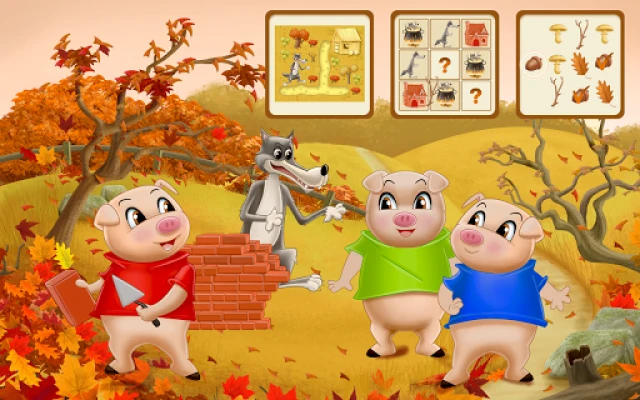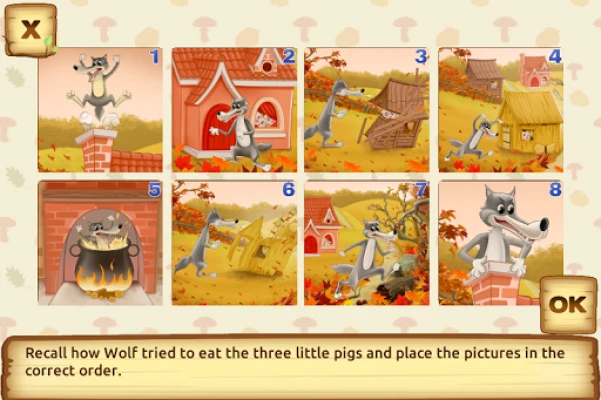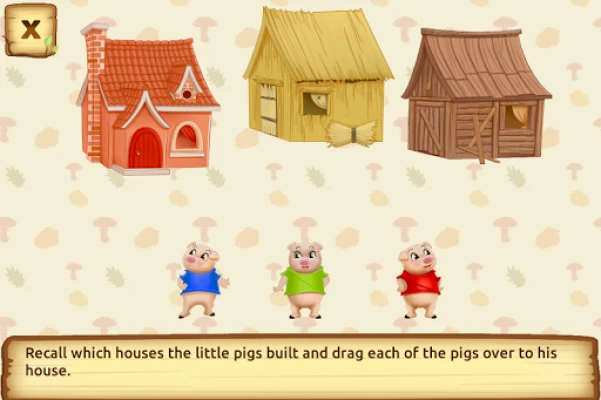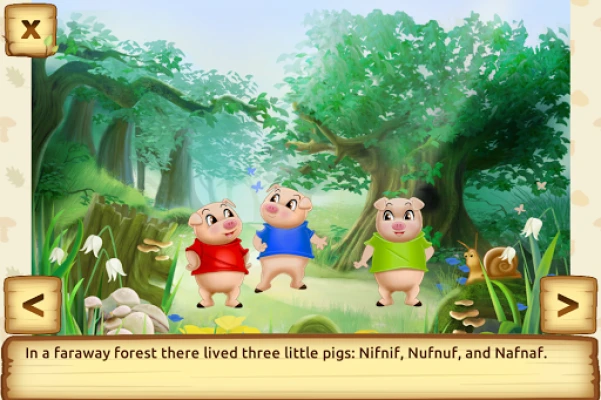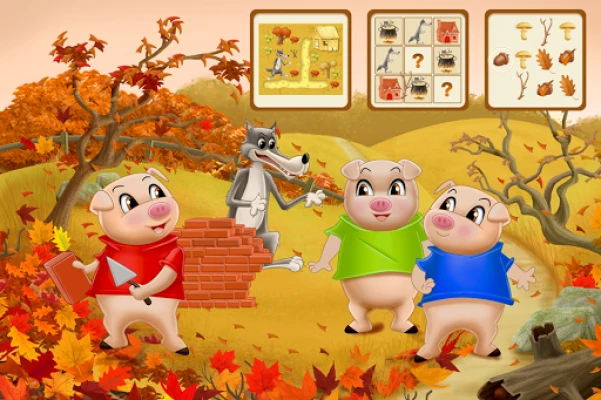
Latest Version
3.0.2
August 24, 2025
LMJ Games
Games
Android
0
Free
com.hedgehogacademy.threelittlepigsfree
Report a Problem
More About Three Little Pigs
Engaging Educational Games for Young Children: A Comprehensive Guide
In the digital age, keeping young minds engaged and learning can be a challenge. However, incorporating fun educational games into their daily routine can make a significant difference. This article explores various types of tasks that not only entertain but also enhance cognitive skills in small children.
Mazes: Navigating Through Fun
Mazes are a fantastic way to develop problem-solving skills and improve hand-eye coordination. Children can enjoy tracing their way through intricate paths, which helps them learn about spatial awareness and critical thinking. By solving mazes, kids also enhance their concentration and patience, making it a rewarding activity.
Puzzles: Piecing Together Knowledge
Puzzles are timeless educational tools that promote cognitive development. They encourage children to think critically as they figure out how to fit pieces together. Engaging with puzzles helps improve memory, spatial reasoning, and fine motor skills. From simple jigsaw puzzles to more complex 3D models, there’s a wide variety to suit every age group.
Memory Games: Sharpening Recall Skills
Memory games are excellent for enhancing a child's memory and attention span. These games often involve matching pairs of cards or objects, which can be themed around animals, colors, or shapes. By playing memory games, children learn to focus and improve their recall abilities, all while having fun.
Sequencing Activities: Building a House Step by Step
Activities that involve putting pictures in the correct order to show how a house was built are not only entertaining but also educational. These sequencing tasks help children understand the concept of order and the importance of following steps. They learn to recognize patterns and develop logical thinking skills, which are essential for future learning.
Object Placement: Learning Through Arrangement
Games that involve placing objects correctly teach children about categorization and organization. Whether it’s sorting shapes, colors, or sizes, these activities foster critical thinking and decision-making skills. Children learn to analyze their surroundings and make choices based on their observations, which is a vital part of cognitive development.
Color Recognition: Finding the Pigs by Their Color
Color recognition games, such as finding pigs by their color, are not only fun but also educational. These activities help children identify and differentiate between various colors, enhancing their visual perception. Engaging in color-based games encourages creativity and can lead to discussions about colors in the world around them.
Other Fun Educational Games for Small Children
In addition to the aforementioned activities, there are countless other educational games that can captivate young minds. Here are a few more ideas:
- Storytelling Games: Encourage creativity and language skills by having children create their own stories using prompts or images.
- Counting Games: Use everyday objects to teach counting and basic math skills in a playful manner.
- Interactive Apps: Leverage technology with educational apps that promote learning through interactive play.
- Outdoor Scavenger Hunts: Combine physical activity with learning by organizing scavenger hunts that require children to find specific items in nature.
Conclusion: The Importance of Play in Learning
Incorporating educational games into a child's routine is essential for their development. These activities not only provide entertainment but also foster critical thinking, problem-solving, and cognitive skills. By engaging in mazes, puzzles, memory games, and other fun tasks, children can learn while having a blast. As parents and educators, it’s crucial to create an environment that encourages exploration and play, paving the way for a brighter future.
Rate the App
User Reviews
Popular Apps










Editor's Choice











